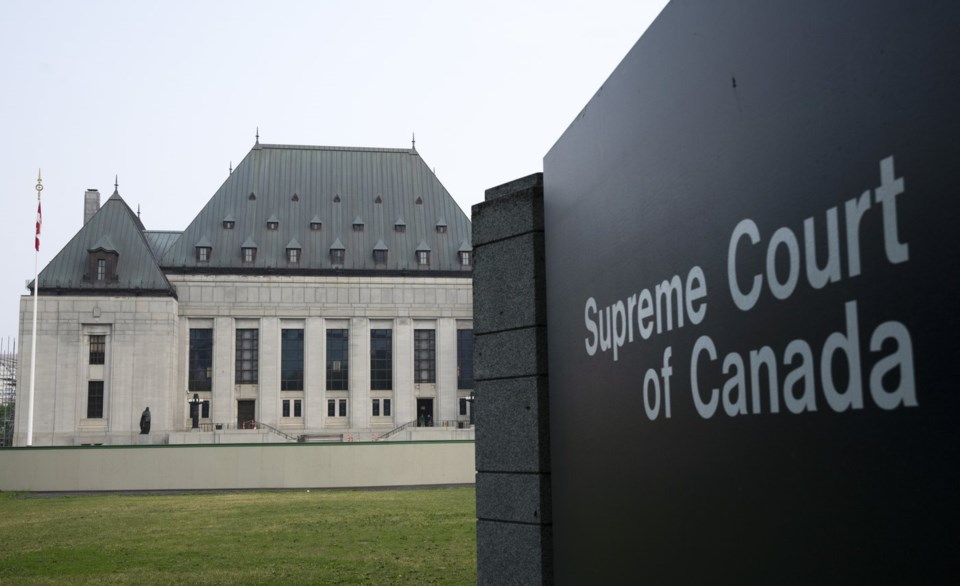The nearly decade-long case of an Ontario man found guilty of manslaughter in the fatal shooting of an Indigenous man has come to a close after Canada's top court declined to hear it.
The Supreme Court of Canada rejected a leave to appeal request Thursday from Peter Khill, who shot and killed Jonathan Styres after finding the man rummaging through his truck outside his Hamilton home in the early morning hours of Feb. 4, 2016.
As is its standard practice, the high court did not give reasons for its decision to not hear the case.
Khill was charged with second-degree murder and pleaded not guilty, testifying that he acted in self-defence and in accordance with his military training.
In 2022, a jury found him not guilty of second-degree murder but guilty of the lesser offence of manslaughter. The following year, he was sentenced to eight years behind bars.
Earlier this year, the Court of Appeal for Ontario dismissed his appeal regarding his conviction but reduced his sentence to six years.
The sentence reduction came after the trial judge sent a letter to the Appeal Court indicating he had meant to say six years but mistakenly read the wrong sentence.
The Appeal Court found the trial judge erred by imposing a sentence that was not what he intended and in "failing to immediately correct his error," noting the letter came 14 months after Khill was sentenced.
The trial judge did not, however, err in allowing the jury to consider the offence of manslaughter, the court found, saying there was an "air of reality" to the verdict that was grounded in Khill's own testimony. The judge's instructions on self-defence and the proper use of out-of-court statements were also adequate, the court ruled.
Khill then turned to the Supreme Court, seeking to appeal both his conviction and sentence. As an alternative, he sought to have the conviction appeal sent back to the Court of Appeal for Ontario to reconsider whether the lesser offence of manslaughter was properly left for the jury’s consideration.
Khill, who was 26 at the time of the shooting, was first tried in the case in 2018. He was acquitted by a jury, but a new trial was ordered after the prosecution appealed — an order that was later affirmed by the Supreme Court.
He was tried again, culminating in his manslaughter conviction.
The Canadian Judicial Council recently reprimanded the trial judge who handed down the wrong sentence, Superior Court Justice Andrew Goodman, for his "injudicious conduct" and ordered him to apologize to Khill as well as defence and Crown lawyers.
A panel for the council found Goodman's inaction after discovering the error "constitutes a serious ethical lapse" that "could only have adversely affected public confidence in the judiciary," and that the judge did not seem to fully appreciate the negative impact of his behaviour.
A reprimand is the most severe sanction short of recommending his removal from office, the panel said.
This report by The Canadian Press was first published July 31, 2025.
Paola Loriggio, The Canadian Press




